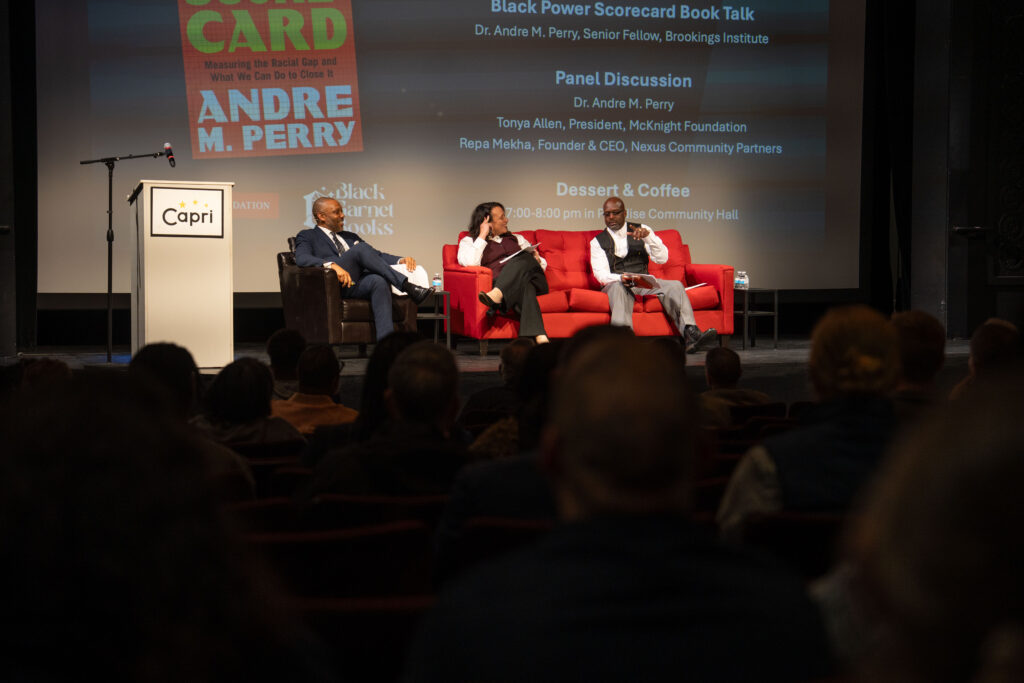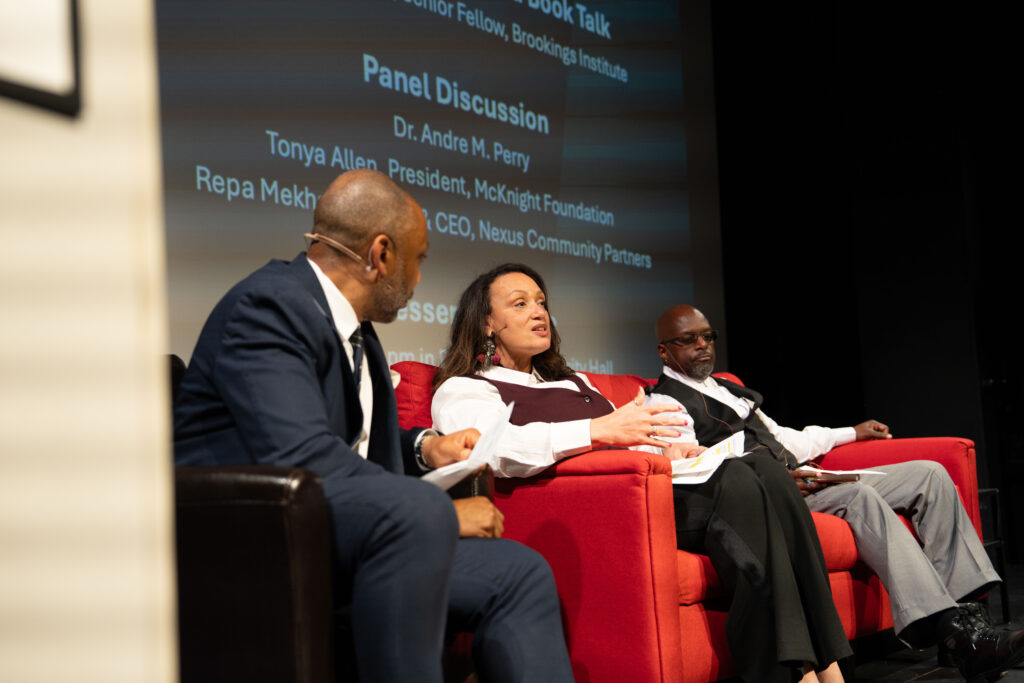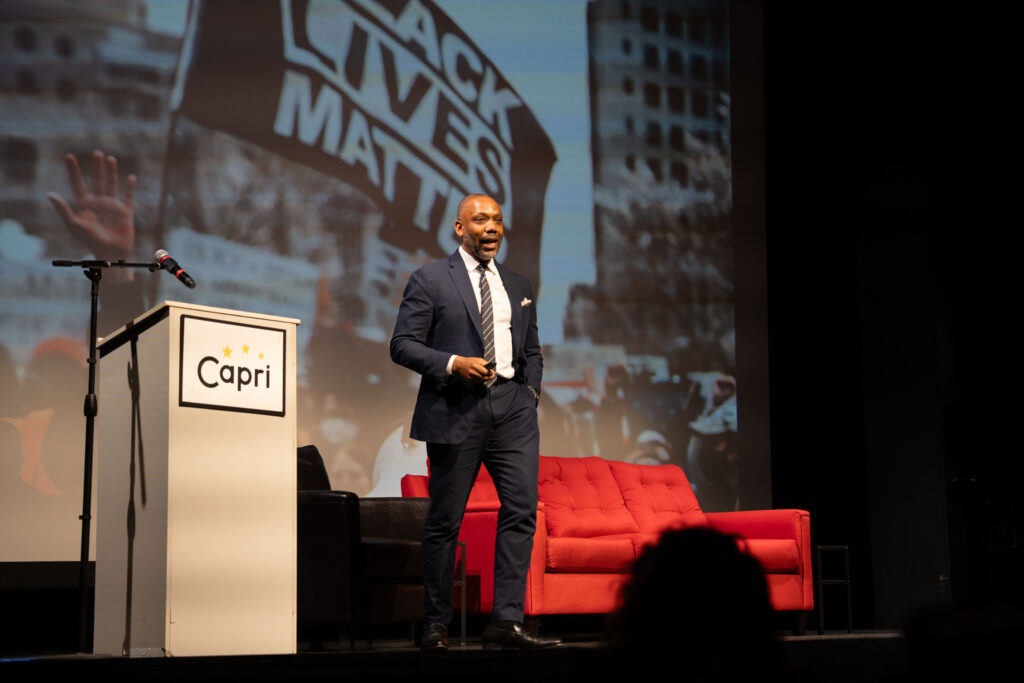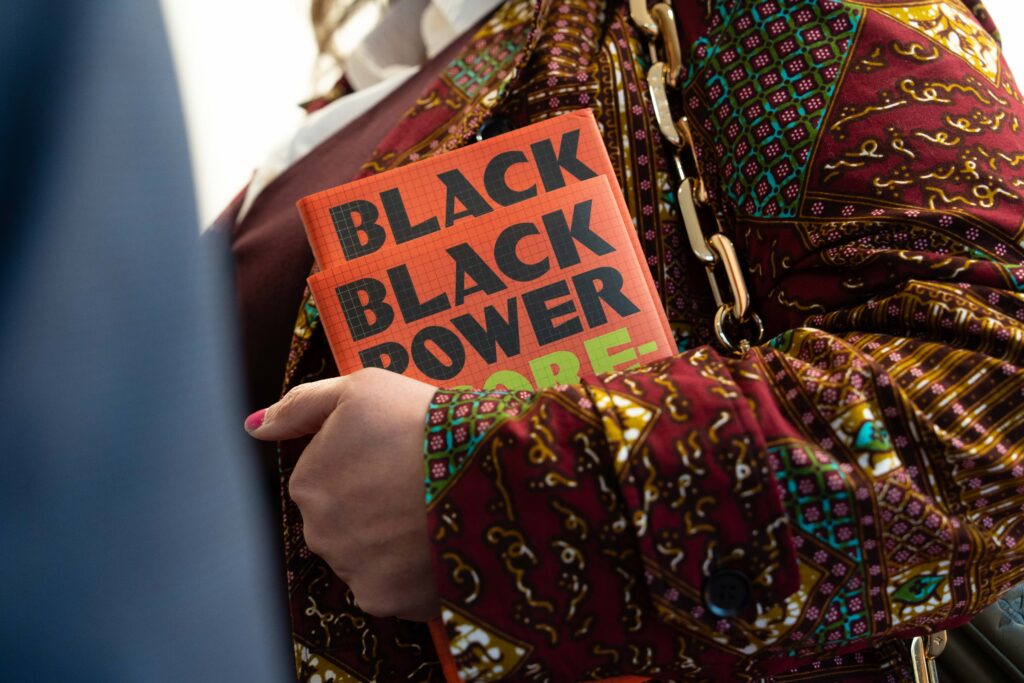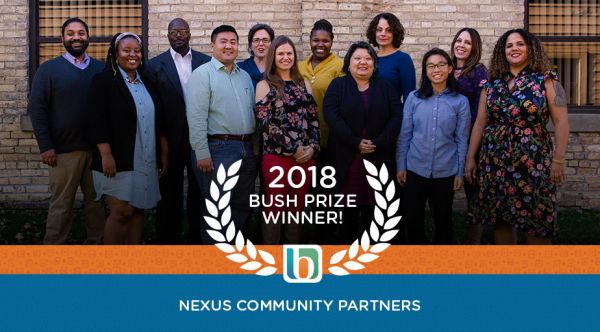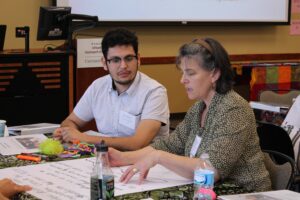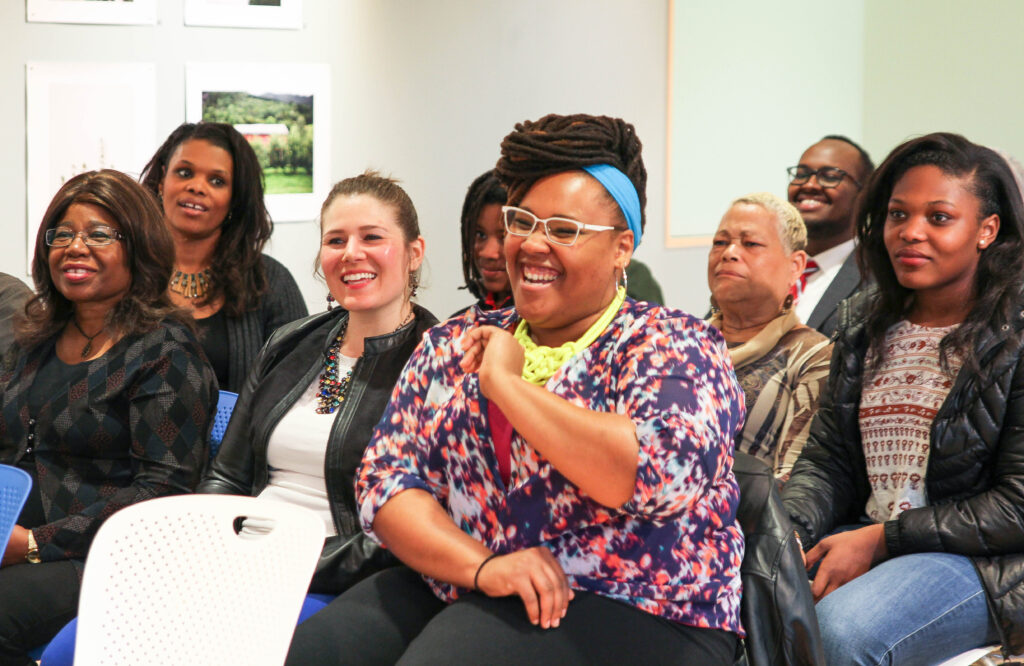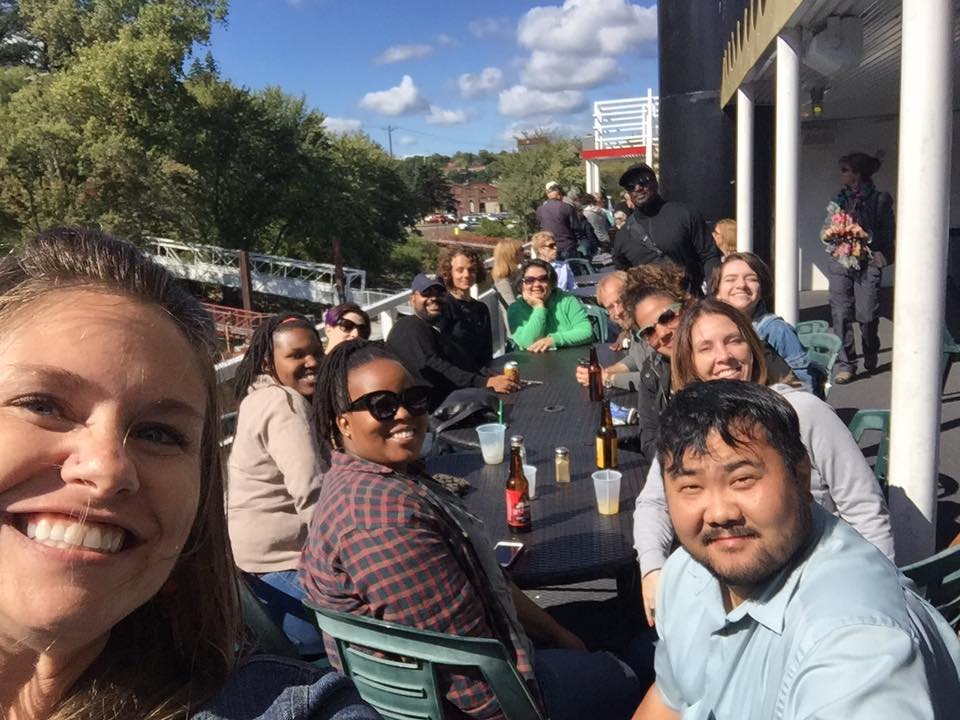In North Minneapolis’ historic Capri Theater, Nexus founder & CEO Repa Mekha talked Black community wealth building with McKnight Foundation President Tonya Allen and author Dr. Andre M. Perry. The conversation centered themes from Dr. Perry’s new book, Black Power Scorecard: Measuring the Racial Gap and What We Can Do to Close It.
Black Power Scorecard is “a dollars-and-cents reckoning of the state of Black America and a new framework to close the power gap. Historically, Black Americans’ quest for power has been understood as an attempt to gain equal protections under the law. But power in America requires more than basic democratic freedoms. It is inextricably linked with economic influence and ownership—of one’s self, home, business, and creations.” Dr. Perry’s hope for the book is to “provide the basis for a Black agenda that isn’t solely rooted in our dying, but in our thriving.”
It was an inspiring evening of truth, vision, and possibility for what Black wealth, power, and equity can—and will—look like.
Repa reflects, “Black wealth building and power, especially generational, is as much a psychology as it is a set of financial practices and tools. It is a claiming and reclaiming of the power and potential that exist with us, and within us, and using it to see and build collectively—while at the same time disrupting barriers. Hope is what we wish to come, will is what we cause to be.”
“I very much appreciated the work that Andre M. Perry has put in front of us through his book,” Repa says. “It effectively calls on us to use what we have as the gate to getting what we want and need. It would be powerful for a group of us to gather around his work to create both collective thought and action.”
